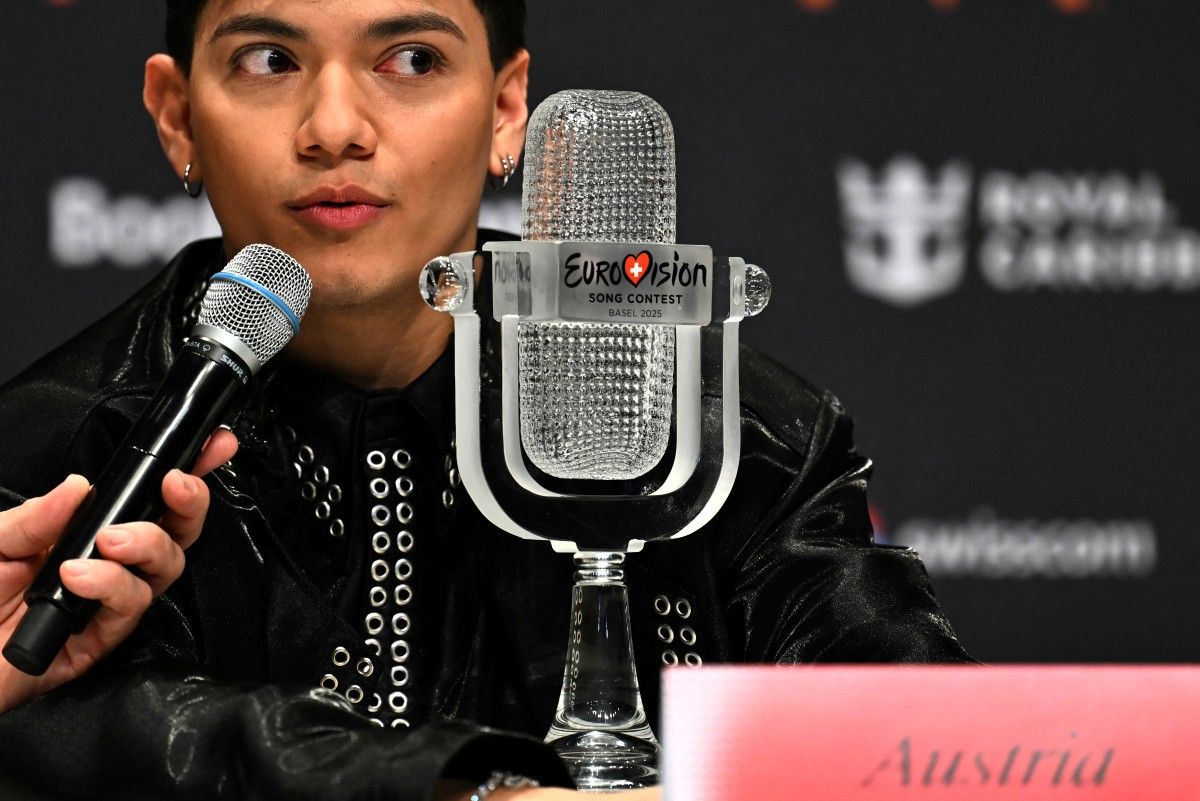
Austro-Filipino countertenor JJ has won Eurovision 2025 with Wasted Love, giving Austria its first victory since Conchita Wurst. At just 24, he captivated Europe with his soprano range and bold musical style.
With his falsetto voice and angelic smile, JJ has given Austria its first Eurovision victory since bearded drag queen Conchita Wurst won eleven years ago.
With Wasted Love—a track that soars with soprano highs between soft ballad refrains and climaxes in a techno finale—Austria took a risky but ultimately rewarding gamble. The song earned 436 points.
“This is beyond my wildest dreams. It’s crazy,” JJ said after his win, clutching the trophy.
“It surprises people that a man can sing so high,” the 24-year-old Austro-Filipino artist told AFP back in April from Vienna, during rehearsals at the national broadcaster ORF's studios.
That surprise often turns into awe—something JJ is used to. Raised in Dubai, he honed his voice in small roles at the Vienna State Opera before making it to Europe’s biggest stage.
Though he says he appreciates Austria’s classical music heritage, with its strict traditions and global prestige, JJ—whose real name is Johannes Pietsch—also wants the freedom “to let loose” and “to experiment.”
Advice from Conchita Wurst
He found his voice in operatic pop, a crossover style that blends genres in what his music school’s rector, Andreas Mailath-Pokorny, calls “an interdisciplinary, boundary-pushing approach that enriches thought and encourages creative exchange.”
JJ’s ethereal, black-and-white performance stood out on Saturday night against Finland’s explicit entries and Sweden’s tongue-in-cheek humor. But it’s his use of the countertenor voice that truly broke new ground.
Some have compared his song to last year’s Swiss winner, Nemo. While classical influences have been part of Eurovision since the 1950s, blending them with other genres has seen mixed results—though Italy’s Il Volo did reach third place in 2015.
Wasted Love reflects a painful time in JJ’s life when he “gave too much love and didn’t get any back.”
Heartbreak turned into triumph onstage—echoing Austria’s first win in 1966 with Merci, Chérie by Udo Jürgens, a classic breakup ballad later covered by German pop icon Helene Fischer.
“When JJ sings, it’s like time stands still,” said Conchita Wurst, who recorded a duet with him and praised him as a “remarkably professional” artist and her true successor.
JJ also got career advice from French singer Louane, a close friend whose lyrics he studied in high school French class.
From Bach to Céline Dion
Among his favorite Eurovision classics is L’oiseau et l’enfant by Marie Myriam, which brought France its last victory in 1977. He loves singing it in the original French.
JJ’s gift for languages comes from attending an international school in the UAE, where his Austrian father, a software entrepreneur, had settled.
From him, JJ inherited a love of classical composers like Bach and Mozart. His Filipino mother, a chef, introduced him to Céline Dion and Whitney Houston.
Fluent in German, English, Tagalog, Arabic, and French, JJ can use his four-octave range to connect with Eurovision’s diverse, global audience.
“Everyone belongs on stage,” says the soft-spoken singer, at a time when LGBTQ+ rights are being rolled back in countries that have left the contest—often accusing it of being “too rainbow,” like Hungary.
“Not just the LGBTQ+ community,” he insists, “but everyone. Music is a universal language that every human being can speak and understand.” Whether it’s pop, classical—or something in between.
By Blaise GAUQUELIN / AFP



Comments